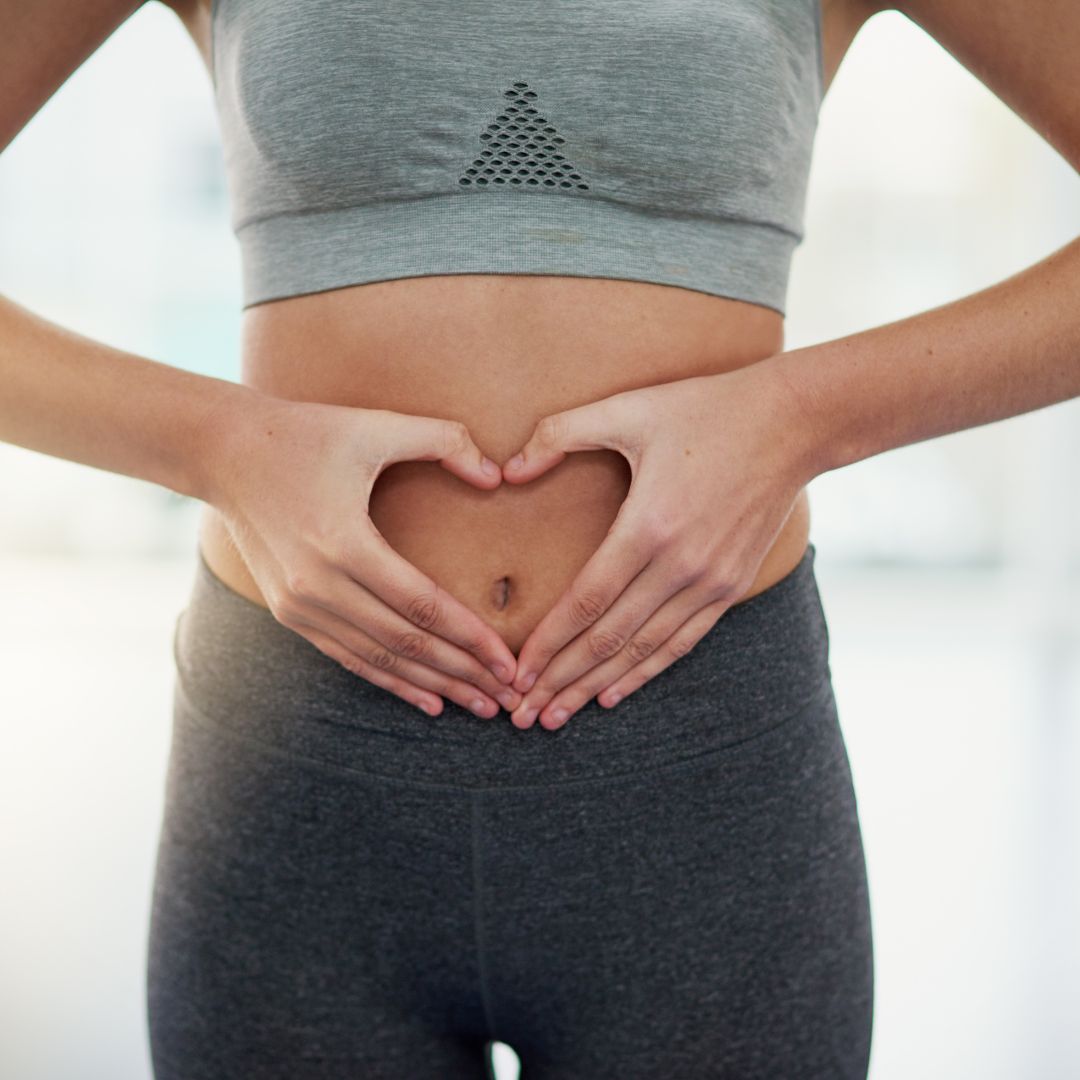
Fix Your Digestion Naturally
There are few things worse than tummy troubles. If your digestive system doesn’t work as it should, the result might be pain or discomfort right through to downright embarrassment at the gurgly noises and bad smells your body produces. It doesn’t have to be that way and, as a nutrition practitioner, I am always amazed by how long some of my clients have been trying to muddle through before they seek my help.
What scientists now call the ‘microbiome’ is a parallel universe of all kinds of different microorganisms running all through your digestive tract, that runs from your mouth to… well, the other end.
Most of these organisms are bacteria, and there are lots more of these than there are cells in your body - about ten times as many. The balance of the bacteria in your digestive system has implications for your health in general and not just your innards. In short, it’s important to have the right kinds of bacteria in the right places. It matters that the ratio of good to bad bacteria works – when you’re out of balance (there are more unfavourable bacteria and other microorganisms) nutritionists call this ‘dysbiosis’.
Dysbiosis can result in your digestive system becoming a more favourable environment for yeasts like candida or parasites. There are some places you don’t really want many bacteria, whether good or bad, like in the small intestine. Your body really should do a daily swoosh of all bacteria from the small intestine down to the colon (it's called the Migrating Motor Complex).
There are many reasons why this might happen – like having had food poisoning in the past – and the result is that the bacteria left behind feast on the food you’re eating, causing bloating, wind, feelings of nausea, diarrhoea and constipation (or a combination of the two). Essentially, all those things you might be linking to your irritable bowel syndrome (IBS).
I’m going to be straight with you and say that the ideal situation is that you bring your digestive problems to me, and that we talk about getting to the bottom (excuse the pun) of exactly why your system isn’t working the way it should, and this usually involves some testing. When you’re ready to prioritise your health, you know where I am.
In the meantime, here are my top 5 tips to help to fix your digestion
The first step in the digestive process is often overlooked but it's a really important one. Known as the cephalic phase, it’s triggered when you see or smell food. You are literally whetting your appetite. When you start thinking about the lovely meal you are going to prepare, you are getting your digestive juices flowing. The enzymes in your saliva help you break down your food more easily so, when the time comes, your body is actually ready to start digesting food before you have even cut the first slice – never mind actually putting anything in your mouth.
It may sound an incredibly simple step – and it is – but these days we are often so busy that we don’t make the time to think about our food in this way. If you find you're always eating on the go, throwing a sandwich down your neck at your desk or having a TV dinner, this is a vital step you are missing out on. One trick is to be mindful and try and spend a few minutes thinking about your tasty lunch before you eat it to get the digestive juices going.
Your stomach does not have teeth! Chewing your food is the second phase of digestion, and it’s key when it comes to good gut health. With proper chewing, you are mechanically breaking down the food into smaller pieces, so that there’s a greater surface area and the digestive enzymes can get to work more easily, doing their job. And the bad news?
If you’re not chewing properly, it’s highly likely that you’re not digesting your food properly. And that means you won’t be absorbing vital nutrients either. Not chewing also means the food you eat takes much longer to break down and, as it hangs around in your digestive system, it can start to ferment, causing uncomfortable wind, gas and bloating. Don’t worry about chewing a certain number of times – that all depends on what you are eating and various other factors.
Instead try this test: chew your food enough so that if someone asked you to spit it out, they wouldn’t know what you had been eating. Another sign you need to chew more is if you start to see undigested food in your stools.
Sales for heartburn tablets are skyrocketing because so many people wrongly assume that their digestive troubles are because of too much stomach acid. What nutritionists like me find more frequently in the clinic is the total opposite! Getting older, stress and some over-the-counter medications can make your stomach acid levels drop to the extent that you don’t produce enough to digest food sufficiently.
Why is this important? The stomach acid you produce not only kills any bacteria in the food you are eating, but it also breaks down the protein in your meal. If you’re not properly digesting the protein element in food, it can start to ferment, creating gases that force up the oesophagal sphincter muscle (a type of muscle flap) and what little stomach acid there is can escape. So that burning feeling, especially if accompanied by smelly gas, can be a sign your digestion isn’t working as well as it should be.
One solution is to have a teaspoon of apple cider vinegar before each main meal. It’s important you choose apple cider vinegar with the ‘mother’ rather than one you can buy in the supermarket (that’s for your chips).
There are people who genuinely produce too much stomach acid and, if you try the apple cider vinegar trick and it seems to make things worse, you can neutralise the acid by taking a little bicarbonate of soda.
Digestive enzymes break down your food into nutrients so your body can absorb them. But as you age, you naturally produce fewer of these helpful enzymes. You can counteract this by increasing your intake of foods that are higher in them – eating pineapple or papaya before a meal can help.
If you aren’t a fan of these fruits, instead try a digestive enzyme capsule (available from health food shops), which will give your system a gentle boost to help it do its job properly.
Not eating is almost as important for your health as eating. It’s important to space out your meals so the digestive system actually gets a chance to rest. This might require some self-discipline if you’re a frequent grazer.
Eating every 4-6 hours is a good benchmark to aim for and gives the body enough time to completely digest the previous meal and have a break before you put it to work again.
Of course, there will be days when your eating routine falls out of whack, but don’t beat yourself up. Just try and get back on track the following day.
And if you would like some help working out *why* you have these symptoms, why not get in touch? You can book a free call here.

What exactly is IBS?
Irritable Bowel Syndrome is a problem I see daily in clinic and it is problematic on many different levels.
If you have been diagnosed with this condition, you may well have been suffering with it for years and, while a diagnosis can – at first– offer comfort in finally having a recognised problem, the satisfaction is short lived because often that’s where all support ends, and you’re left no further forward in actually fixing what the problem is.
The difficulty begins because IBS is essentially meaningless; it’s a catch-all term used to encompass a huge variety of digestive issues. If you’re serious about getting to the bottom of the problem (no pun intended), I’m happy to discuss your symptoms and help find a way forward. You can book a free IBS health check with me by clicking here.
In my experience, it’s likely to be one of the following five conditions:
1 SIBO (small intestine bacterial overgrowth)
Around 60% of people with IBS will have SIBO. Though you might have heard about good (and bad) bacteria in the gut, really what experts are talking about is the balance of bacteria in the large intestine: the colon.
The small intestine shouldn’t have very much bacteria at all, and the each day the body should perform a flush to sweep bacteria from the small intestine and into the large intestine. This flush is called the ‘migrating motor complex’.
For a huge variety of reasons (historic food poisoning being the most common, but also low levels of stomach acid, or adhesions may play a role, among others) the bacteria are not swept away. The trouble is that these bacteria can ferment the food in your small intestine, causing gas, belching, bloating, pain and a variety of other symptoms, including constipation and/or loose stools, and even anxiety.
A simple breath test can establish which gases are present, and we can devise an action plan based on your results.
2 Lactose intolerance
This is when your body is not able to tolerate lactose, a type of sugar found naturally in milk and other dairy products. Essentially, bacteria in your intestine feed on these milk sugars, leading to a host of IBS symptoms, like bloating and gas, nausea, constipation or diarrhoea.
It can go hand in hand with other digestive complaints, such as coeliac disease or increased intestinal permeability (‘leaky gut’). Lactose intolerance can be diagnosed via a simple at-home breath test.
3 Fructose malabsorption
The symptoms are very similar to lactose intolerance. Fructose (which is found in fruit, honey and many processed foods) is a sugar, which, like lactose, is digested in the small intestine.
Some people cannot absorb fructose, and what is not absorbed is fermented by intestinal bacteria, causing bloating, cramping, gas and distension of the stomach.
You might also experience brain fog and headaches. A breath test will diagnose the condition.
4 Dysbiosis
This is an imbalance in the levels of beneficial (good) and pathogenic (bad) bacteria in the large intestine or colon. This is now common due to overuse of antibiotics and alcohol, an increase in high sugar diets, and stress.
Symptoms can vary from a sluggish bowel or diarrhoea, pain, bloating and flatulence, to chronic bad breath, joint pain, fatigue, and food sensitivities.
Dysbiosis is also implicated in a variety of health conditions like diabetes, heart disease and obesity. A stool test can help establish whether your gut bacteria are out of balance, along with a host of other markers that might be useful in getting to the root of your digestive problems.
5 Yeast overgrowth
Where the gut environment becomes out of balance (due to dysbiosis), yeast can thrive.
Diets high in sugar feed the yeast – although if you think you might have a yeast overgrowth, it’s worth noting that long-term yeast problems can mean that the yeast cells are pathogenic or disease causing, and that the yeast has switched its metabolism to also be able to digest protein and fat. Symptoms of yeast overgrowth include recurring thrush, gas or bloating, fatigue, bad breath, cravings for sweet foods, joint pain and brain fog.
A stool test can establish the presence of candida or other yeast overgrowth.
Some people struggle with digestive problems for years. If you are ready to make fixing your gut health a priority, I would love to work with you. Please click the link here to book your free IBS health check now.

10 Reasons Why You Need More Sleep
I’m sure you’re already aware that getting more sleep is a great idea, but here’s something I see a lot in my nutrition clinic: knowing something doesn’t mean doing it.
Sometimes I feel it’s because people aren’t completely sure why sleep is so important for their health and, without that vital piece of information in place, it’s hard to persuade yourself it’s something you should be doing when there are so many other things calling for your attention and your valuable time.
So today I thought I would offer up some compelling reasons why making sleep a priority really is a good idea. You will likely already know many of the things you could do to make sleep more likely to happen but there is no urgency because the concept of sleep feels too far removed from the symptoms you’re experiencing. So, here’s my list, which is not exhaustive. Let me know which is the biggest reason you have for sleeping more!
Are you ready to discover the game-changer that could transform your health? Let's talk about sleep – the unsung hero of well-being – and what the lack of it is doing inside your body.
1. Promotes weight gain
Are those stubborn extra pounds refusing to budge? Enter sleep – a star player in your weight loss journey.
Many studies point to sleep restriction leading to increased levels of ghrelin, the hunger hormone, and decreased levels of leptin, the hormone responsible for fullness.
Not only that, chemical changes inside the brain also alter the kinds of foods you fancy eating. So, by ensuring sufficient sleep, you're not just avoiding late-night snacking; you're setting the stage for a metabolism that works in your favour.
2. Creates more inflammation
Practically every cause of dis-ease in the body (and also disease) is related one way or another to inflammation. Inflammation can wreak havoc on your body, and poor sleep might be fanning the flames.
Researchers found a clear link between sleep deprivation and increased inflammatory markers. So, when you prioritise sleep, you're not just easing into dreamland; you're actively reducing the risk of inflammatory conditions of all kinds.
3. Destabilises your hormones
Your body is a finely-tuned orchestra of hormones, and sleep plays the role of the conductor. Skimping on sleep can throw this delicate symphony off balance, impacting everything from stress hormones to those governing metabolism (like hunger and fullness) as well as female hormones. For women, sleeping well is not a luxury.
When you don’t sleep, what might be on the cards includes menstrual irregularities due to interruptions your body’s natural wake-sleep rhythm, exacerbated PMS as well as problems with fertility, too. A harmonious hormonal dance begins with a restful night's sleep.
4. More stress on top of your existing stress
Feel like stress and anxiety are running the show? Let sleep be your backstage pass to tranquillity. Author of the book Why We Sleep, Matthew Walker, highlights the crucial role of sleep in emotional regulation. Get less sleep, expect heightened emotional reactivity, increased stress and anxiety, and symptoms of mental health disorders like depression.
So, when you're tucked in for the night, you're not just escaping reality temporarily; you're arming yourself against the stressors of tomorrow.
5. Poor memory
Ever wondered why a good night's sleep leaves you feeling mentally refreshed? It’s because sleep contributes to memory consolidation and cognitive function.
When you prioritise sleep, you're not just catching up on dreams; you're enhancing your brain's ability to tackle challenges, adapt to new circumstances, make better decisions, and retain information. That sounds like a win on every level imaginable.
6. Compromised immunity
Picture sleep as your body's superhero cape, especially when it comes to the immune system.
Insufficient sleep weakens your defences, making you more susceptible to infections and worse – studies point to lack of sleep also being a risk factor in a variety of cancers. Want to stay healthy? Make sleep your immune-boosting sidekick.
7. Greater risk of heart disease
Heart disease is a leading cause of illness and death across the western world and there are a huge number of risk factors involved, from smoking to being overweight. Interestingly, there is an increasing amount of attention being given to poor sleep and cardiovascular risk. It’s thought to be linked to the non-REM sleep stages, during which your whole body slows down (heart rate, blood pressure, breathing) and this is restorative for the heart.
Now imagine getting less sleep or interrupted sleep… Small wonder that chronic sleep deprivation is linked to a wide range of cardio conditions, like high cholesterol, stroke and heart attack. Guard your heart – prioritise those peaceful nights.
8. More likely to get diabetes
Watch out for the blood sugar rollercoaster! If you’ve been in my world for a while, you might have seen me talk about blood glucose levels being key for hormone balance. It’s a subject I never tire of talking about it and it’s easier to get under control than you might think. This is a key part of all my nutrition programmes so do let me know how I can help.
Lack of sleep has been linked to insulin resistance, paving the way for type 2 diabetes. Plus, as I covered in my happy healthy hormones blog, balancing sugar helps balance insulin, which keeps our sex hormones balanced.
9. You’ll die earlier
If you want to live longer (and spend more of those years in good health), sleep must be high on your to-do list. Consistent sleep patterns are key. According to the American College of Cardiology, who analysed data from a whopping 172,321 people, if you sleep well, for long enough and feel rested when you wake, you are 30% less likely to die prematurely, 21% less likely to die from cardiovascular disease, 19% less likely to die from cancer, and 40% from other causes.
Ready to feel great?
10. Get more sleep, you’ll be happier
We all know everything looks better after a decent night’s sleep. There’s not a single pasture that is not greener. It’s official. A good night’s sleep means you’ll be happier and more satisfied with life. That’s enough for me!
Are you struggling with sleep right now? Why not book in a call and find out how I can help.

Cauliflower and Chickpea Curry
This is a delicious, easy recipe that is perfect for batch-cooking. Plus, it’s full of fantastic hormone-balancing ingredients. Cruciferous vegetables, like cauliflower, contain a plant compound called indole-3-carbinol (I3C) which acts as a plant oestrogen and may help balance hormones by regulating oestrogen levels.
Rich in calcium, magnesium, and fibre, chickpeas are also high in phytoestrogens. These are naturally occurring plant-based chemicals, which are structurally similar to oestrogen and exert a weak oestrogenic effect. The great news is that you can use them to gently help rebalance your hormones.
Serves 4
Ingredients:
2 tbsp coconut oil
3 tbsp medium curry paste (sugar and sweetener free)
2 large onions, sliced
1 red pepper, chopped
1/2 cauliflower, broken into small florets
240g dried chickpeas, soaked and rinsed then drained
400ml hot vegetable stock
Handful fresh coriander, chopped or torn, to serve
Salt & pepper, to taste
Method:
1. Heat the oil and curry paste in a large frying pan.
2. Add the onions and red pepper and fry over a medium heat to soften.
3. Add the cauliflower and chickpeas and stir to coat them in the curry paste mix.
4. Pour over the hot stock, stir then bring to the boil.
5. Cover the pan and simmer over a gentle heat for 35 mins until the cauliflower is fairly soft.
6. Season to taste.
7. Sprinkle over fresh coriander to serve
8. Enjoy!

Your hormone balancing action plan
If you’re looking to balance your hormones, here are my five top tips:
Prioritise sleep
There are some actions you can take to make a good sleep much more likely. These include things like avoiding drinks containing caffeine after lunch, going to bed at the same time every day, keeping the temperature in your bedroom comfortable, keeping the bedroom completely dark so you’re not disturbed by light and making an effort to relax for at least 5 minutes before going to bed - a warm bath, massage, meditation and so on.
The biggest tip I can give you is to really ensure that you prioritise your sleep. Make a real effort to focus on all the things you can do to improve your sleep hygiene rather than ‘kind of’ doing it.
Move your body
Exercise can have a noticeable effect on hormones and mood. You might have heard how exercise releases endorphins and the feel-good hormones dopamine and serotonin.
Instead of moving in such a way that you place excessive stress on the body, consider how your body likes to move. Focus on things like brisk walks, yoga or pilates, and weight training ahead of more punishing regimes involving spin classes and long runs.
Improve your digestive health
There might seem quite a geographical distance between your digestive system and your brain but the two are actually very closely connected. In fact, the digestive system is often referred to as the ‘second brain’.
If you have any problems with your digestive system, it will be worth working on these with a nutrition professional. Your nutritionist will be able to advise if any functional testing might be appropriate to look for food reactions (allergies or intolerances) or a broader test to see whether you might have bacterial imbalance or infection.
For the purposes of this blog, it might be helpful to ensure you regularly eat probiotic foods like natural yoghurt, kefir and kombucha (all are now widely available even in supermarkets) or even take a probiotic supplement.
Reduce stress
Taking action to reduce stress in your life is essential but many people are concerned the specific things they might do are too much of a luxury in their already-busy lives.
Bottom line: you can’t simply keep going the way things are.
Taking some time to empty the ‘stress bucket’ is critical for your wellbeing. Yoga and mindfulness/meditation are proven ways to reduce stress but consider taking time out just to do the things you love to do quietly, mindfully and on your own: sitting in the garden with a cuppa, reading, colouring, knitting, or trying out a new hobby.
Balance your blood sugar
Blood sugar levels have a profound effect on our hormones largely due to the effect they have on insulin, which has a knock-on effect to our sex hormones. Balancing blood sugar could be an entire blog in itself, so do check back on previous blogs I have written.
But, in essence, try to stick to three good meals per day, and avoid snacks unless absolutely necessary. Make sure to have good quality protein with every meal and/or snack, and make sure that half your plate is covered with veggies (the green and brightly-coloured kind – not potatoes!)
And don’t forget, I’m always here if you’d like to discuss hormone testing or look further into why your hormones might be acting up right now. Just book in a call here.

Healthy, happy hormones
When you think about mental health, you’re probably thinking about your brain and how that works. The picture is often much more complex. Hormones play a big part because these chemical messengers are the background to everything that happens in your body. How you feel, therefore, is not just psychological, it’s biological.
Did you know, there are a huge number of symptoms that are common to both depression and hormonal imbalance? These include low energy, dizziness, low mood, apathy, anxiety, irritability, anger, lack of enthusiasm, despair, headaches, poor concentration, feelings of hopelessness, lack of confidence, low libido, fuzzy brain, memory loss, and insomnia (although there are others).
Rebalancing your hormones naturally is not something that happens overnight, but it can be greatly improved with the help of nutritional and lifestyle change. This blog will allow you to pinpoint where you might need help or support.
Mood and your cycle
Two of the main hormones that affect your feelings of mental wellbeing and clarity are oestrogen and progesterone, and these change throughout your menstrual cycle. It’s an over-simplification – but perhaps a helpful one – to think about oestrogen largely bringing positive effects to your mood and progesterone contributing more negative effects. With such a pronounced hormonal connection on mental health, it’s small wonder that women are twice as likely to suffer from depression than men.
According to the National Institute of Mental Health, 64% of women who suffer from depression say their symptoms get worse during the pre-menstrual period. Hormones are also likely to contribute to antenatal or postnatal depression, which affect around 10-15% of new mothers. And anxiety and depression are also starting to be recognised as symptoms of the peri- menopause on top of hot flushes and night sweats.
How it works
At certain times in your cycle (in the run-up to ovulation), there will be lots of oestrogen in your system and women tend to feel brighter and better in their mood. You might even notice at this time you feel better at talking and articulating yourself. In the second half of your cycle, oestrogen dips and progesterone comes into play. For some women, this can lead to lowered mood or depression.
PMS or PMDD
You might already experience this as Pre-menstrual Syndrome (PMS), a very common condition linked to the changing levels of these hormones, that might include feelings of bloating, breast tenderness or headaches, or manageable emotional symptoms like irritability.
For a small number of women (about 2-8%), the effect of these hormones on their mental wellbeing is pronounced. This is called Pre-menstrual Dysphoric Disorder (PMDD); an extreme form of PMS and one that, if you think might apply to you, you will want to ask your doctor about.
Why does this happen?
One of the first things to know is that the production of dopamine and serotonin (the two main brain chemicals associated with the development of depression and psychosis) is heavily linked to levels of oestrogen.
Research seems to suggest that there isn’t a noticeable difference in levels of oestrogen between those who are affected by mental health symptoms around their period or during the menopause – it seems some women are just especially sensitive to hormonal change, or perhaps also that lifestyle problems like stress may also play a big part.
Other hormones
Testosterone:
You might think of testosterone as the male hormone and, while men do produce much higher levels, every woman needs testosterone, too. Testosterone can increase sexual desire and libido, make bones and muscles strong, and have you feeling assertive and confident. The downside can be anger and aggression. If you suffer with PCOS, then you may be suffering from an excess of testosterone and other androgens, which comes with its own set of issues. Click here to find out more about this condition.
Thyroid:
Altered levels of thyroid hormones impact on mental wellbeing. If you just don’t feel like yourself, feel lethargic and low, it could be that your levels of active thyroid hormone are low. This can often run hand in hand with other types of hormonal imbalance, such as perimenopause or PCOS.
Cortisol:
Cortisol is one of the main stress hormones and, when stress levels are high, literally any of the mood-related symptoms I have mentioned in any of the above might be present.
Oxytocin:
Oxytocin directly opposes cortisol. It’s the love hormone and, if you have children, you might recognise it as the hormone that floods women after childbirth to encourage bonding. It has a direct effect on appetite, insulin resistance, weight loss – and your mood.
Impact of hormones on your blood sugar levels
Declining oestrogen levels have a role to play in insulin sensitivity (that means how sensitive – or not – the cells in your body are to the fat storage hormone insulin). In fact, a lack of sensitivity to insulin (or even being resistant to the effects of insulin) is lurking behind many of the common hormonal symptoms, particularly in menopause or PCOS, like fatigue and weight gain as well as symptoms of low mood like brain fog, anxiety and depression.
“Hormones and mental health” is a complex picture in which your physiological health and mental wellbeing are inextricably intertwined. It’s best to work with a nutrition practitioner to unravel this for you. They will be able to piece together a hormone balancing food and lifestyle plan to suit your circumstances. Check out my Hormone Balancing Action Plan or why not book in a call here?
![]()
Please get in touch and find out more - I offer a free 30-minute exploratory call.